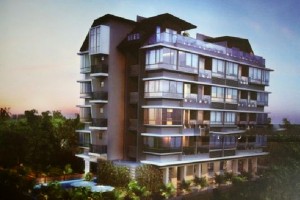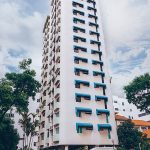Knight Frank Singapore, a leading real estate services company, said majority of shoebox unit investors profited from plonking money into such apartments. Knight Frank’s analysis of resale caveats of shoebox units found that 88.4 per cent of such resale transactions made a profit.
A majority of shoebox unit investors who have put their faith in shoebox units have not been disappointed, said Knight Frank.
Table of Contents
Resale transactions analysed (for which there were primary sales of the same units previously) show that owners who have sold their shoebox units enjoyed an average capital gain of 11.5 per cent or an annualised 2.4 per cent over their holding periods. These surpassed the 10.6 per cent average gain for resale transactions of all unit sizes or a 2.0 per cent annualised return for units from new projects launched since 2010.
However, the average transaction price of shoebox apartments in new projects only slightly increased from $727,846 in 2010 to $771,677 so far this year, while median psf pricing marginally increased from $1,473 psf to $1,495 psf over the same period.
But still shoebox unit investors are currently enjoying gross rental yield of around 3.5 percent, with units in Singapore’s northern region posting the highest rate of 4.0 percent.
While developers have been blamed for the ramp-up of such small apartments in their quest for profit maximisation, it is clear that there is demand for these residential units by shoebox unit investors. The report noted that i n new non-landed developments outside the central area, sales of shoebox units as a proportion of overall sales peaked from 16 per cent in 2012 to 22 per cent in 2016. As of end-October 2018, the rate remains high at 19 percent.
n new non-landed developments outside the central area, sales of shoebox units as a proportion of overall sales peaked from 16 per cent in 2012 to 22 per cent in 2016. As of end-October 2018, the rate remains high at 19 percent.
The Urban Redevelopment Authority (URA) on Oct 17 announced measures to deter excessive shoebox units development. URA said that the revised guidelines will deter developers from developing excessive shoebox units and will also help to manage potential strains on local infrastructure and safeguard the liveability of residential estates. Under new guidelines which will come into effect from January 17 next year, several heartland areas — including Marine Parade, Balestier and Loyang — will be subject to more stringent requirements.
Excessive shoe box units development pose a severe strain which the “cumulative effect of new developments” could pose on local infrastructure, said URA.
https://www.icompareloan.com/resources/excessive-shoebox-units/
Shoebox units are are properties that don’t exceed 500 square feet. Some of these units, such as The Ebony (Lorong Marican) and Royce Residences (Geylang), are in the range of 300 to 400 square feet. Apart from being tiny, the other distinguishing trait of a shoebox unit is the ridiculously high price per square foot. City Suites at Balestier Road for example, has apartments that range between $1,600 to $1,700 per square foot; and 474 sq ft apartments at 26 Newton go for upward of $2,500 psf.
Apart from shoebox unit investors, such tiny apartments is good for Singapore banks, said chief mortgage consultant of iCompareLoan, Paul Ho.
“Ever smaller housing means rising land prices and that means safer asset values for the banks that lend out home loans and hence greater safety for the value of their secured lending for the Singapore’s banking industry,” Mr Ho said.
https://www.icompareloan.com/resources/shoebox-apartments-high-land-price/
Mr Ho added: “I have been a strong advocate of setting a minimum size of condo units, in which any condo units built should not be smaller than the stipulated size. With a minimum size (i.e. no smaller than a certain size), the dignity of Singapore living will be ensured and the run away land price will be controlled.
“Shoebox units only serve to make money for developers – as developers can sell the property once they obtain the permit for sale and money will start to come in. This allows too much leverage and hence if developers feel that the cycle is approaching a positive cycle, they will bid very high and pass on the cost to buyers and potentially make explosive profits.
“I suggest that a more stable market can emerge if developers can only start selling units if they reach 30 per cent completion. This will then reduce the time-frame developers have for selling the units and hence will price it more for sale. With this, developers will bid responsibly and price attractively. But I doubt the Singapore government will want to do that, as this will reduce the land selling price.”
How to Secure the Best Home Loans Quickly
iCompareLoan is the best infomercial loans portal for home-seekers, buyers, investors and real estate agents alike in Singapore. On iCompareLoan, you will be able to find all the latest news and views, informational guides, bank lending rates and property buying trends, and research data and analysis.
Whether you are looking to buy, sell or refinance apartments, condominiums, executive condos, HDB flats, landed houses or commercial properties, we bring you Singapore’s most comprehensive and up-to-date property news and best home loans trends to facilitate your property buying decisions.
Our Affordability Tools help you make better property buying decisions. iCompareLoan Calculators help you ascertain the fair value of a property and find properties below market value in Singapore.
Our trademarked Home Loan Report is Singapore’s first one-of-a-kind analysis platform that provides latest updates of detailed loan packages and helps property agents, financial advisors and mortgage brokers analyse best home loan packages for their clients, so that they may give unbiased home loan/commercial loan analysis for their property buyers and home owners. Our distinguished Panel of Property Agents who are users of our Home Loan report can give the best all-rounded advise to real estate seekers.
All the services of our mortgage consultants are ABSOLUTELY FREE, which means it’s all worth it to secure a loan through us.
Whether it is best home loans, best commercial loans or refinancing of existing loans or SME loans, CONTACT US TODAY!






